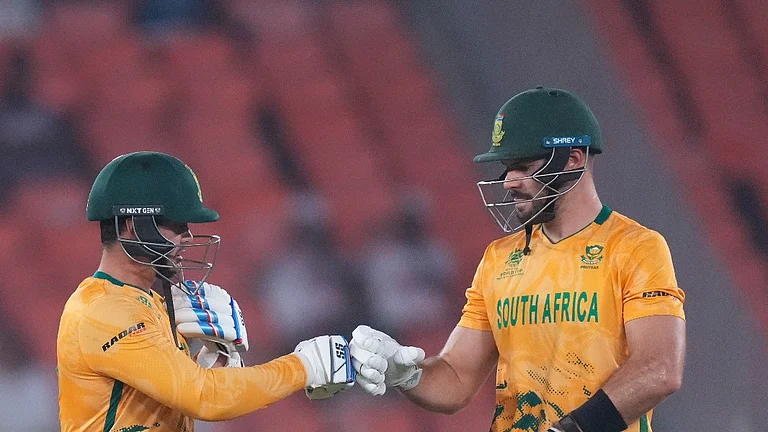The year 2022 has been most eventful for Qatar, the tiny, energy-rich country in the Gulf that always had the powerful desire to be known better on the world stage.
It began with the emir of Qatar, Sheikh Tamim bin Hamad Al Thani being invited by United States President Joe Biden to the White House as his first foreign guest in January.
As the second largest supplier of liquified natural gas in the world, Qatar played a critical role to help Europe deal with its energy crisis in the wake of the Ukraine war—an effort that led the US to confer it with the status of a non-NATO ally.
Qatar ended the year by hosting the FIFA World Cup 2022 football championship—a competition that critics the world over described as one the greatest in the game’s history.
Before 2010, when it won the bid for the FIFA World Cup, it was the most unlikely country to host one of the most popular sporting events in the world as Qatar hardly had any known culture of football.
But Qatar always had the propensity of punching above its weight.
Propelled by the huge success of the FIFA World Cup it now wants to bid for the 2036 Summer Olympics.
In the intervening period, it is scheduled to host a series of sporting events like the Asian football, the world swimming championship and the world table tennis championship. Qatar wants to present itself as a major destination for global sports.
Its detractors have called it “sportswashing--” an attempt by Qatar to divert the world’s focus from its inhuman treatment of migrant workers and criminalisation of homosexuality.
Others have seen it as an attempt to elevate Qatar’s geo-political profile by using the soft power of sports to project itself as a moderate, Islamic state in the Arab world to attract tourists and foreign investors.
As the richest country in the Gulf and the fourth richest in the world, with a per capita income of over US$ 97,000, Qatar’s swagger has matched that of its larger Gulf neighbours, Saudi Arabia, and the United Arab Emirates.
It has an area of about 11,000 sq. km and a population of 2. 8 million. But this has not stopped Qatar from playing a larger political role that has led it to get involved in areas not only in West Asia but also in countries far beyond the region.
The Qatar-funded TV network Al Jazeera has found global acclaim for its news coverage. But critics have often accused it of being Qatar’s propaganda tool.
Qatar’s rising profile has led to strains and clashes with its larger neighbour Saudi Arabia. As the custodian of the two holy mosques in Mecca and Medina and the largest producer of oil, Saudi Arabia considers itself the leader of the Muslim world.
But Qatar has maintained its independence and developed close ties with Iran and Turkey, the other big powers, and bitter rivals of Saudi Arabia in the region.
In 2017 when Saudi Arabia and other Gulf countries imposed an economic blockade on Qatar to force it to cut off its ties with Iran and Turkey. Qatar not only ignored their threat but with the help of its friends remained totally unaffected. Its economy also boomed in this period with the global rise in gas prices and huge investments from outside in its infrastructure before the FIFA World Cup.
However, Qatar’s security and confidence come mostly from its close ties with the United States. It hosts the US’s central military command and has played a critical role in America’s foreign policy, helping and safeguarding US interests through various crises.
It offered its territory to the US during the Iraq campaign of 1990 and 2003 and joined American efforts to get rid of Muammar Gaddafi from Libya. Moreover, Qatar played a crucial mediatory role to bring the Taliban and the US together to reach an agreement that finally ended the 20-year-old war in Afghanistan. Even when American and European nationals were fleeing Afghanistan after the Taliban took over Kabul, Qatar became the visa facility and transit point.
Apart from playing a pivotal role in the US’ energy security, Qatar has also been the venue for talks between American and Iranian officials as they try to find ways of bringing bilateral ties back on track.
Since FIFA’s decision in 2010, Qatar had faced a sea of protests and criticism and many prominent international figures had even called for boycotting the World Cup. But Qatar not only dealt with the global criticism but also took the opportunity of significantly transform the country.
It is reported to have spent over US$220 billion in building seven new stadiums and cutting-edge sports centres, a state-of-the-art transport system, including a new airport, over a hundred luxurious hotels, new highway, and a metro system. It now owns the biggest football club in France, Paris Saint-Germain, where the two best footballers the Argentinian Lionel Messia and the French Kylian Mbappe play.
Qatar has also significantly reformed its labour sector by allowing the International Labour Organisation (ILO) to open an office in 2017 and announced several amendments to its labour laws by introducing minimum wages and a wage protection to monitor compliance, it has also defined maximum daily work hours and measures to protect workers from heat stress.
It has also used the transformed infrastructure in the country to offer itself as a business and investment destination in the world. All the leading agencies in the world have given Qatar very high ratings for creating the most attractive business atmosphere and several international businesses and brands have now begun to shift to Qatar.
But the FIFA World Cup also allowed Qatar to take its most important political gesture as it patched up its strained relations with Saudi Arabia. The Emir of Qatar and the Saudi Crown Prince Mohamad Bin Salman sitting side by side at the inaugural match in the Al Bayt stadium was perhaps the most politically significant picture of the tournament.
Qatar’s bid to host the Summer Olympics may not succeed as the International Olympic Committee is unlikely to be as pliable as FIFA. But Qatar has already managed to raise its profile by several notches both in the Arab world and in regions beyond the Gulf.
This will also bring Qatar under more severe international scrutiny than it has ever faced in the past. How it manages to match those high expectations of the outside world, especially the observers in the West, will be known in the coming days.
But few would deny that 2022 has been a transformative year for Qatar.





















